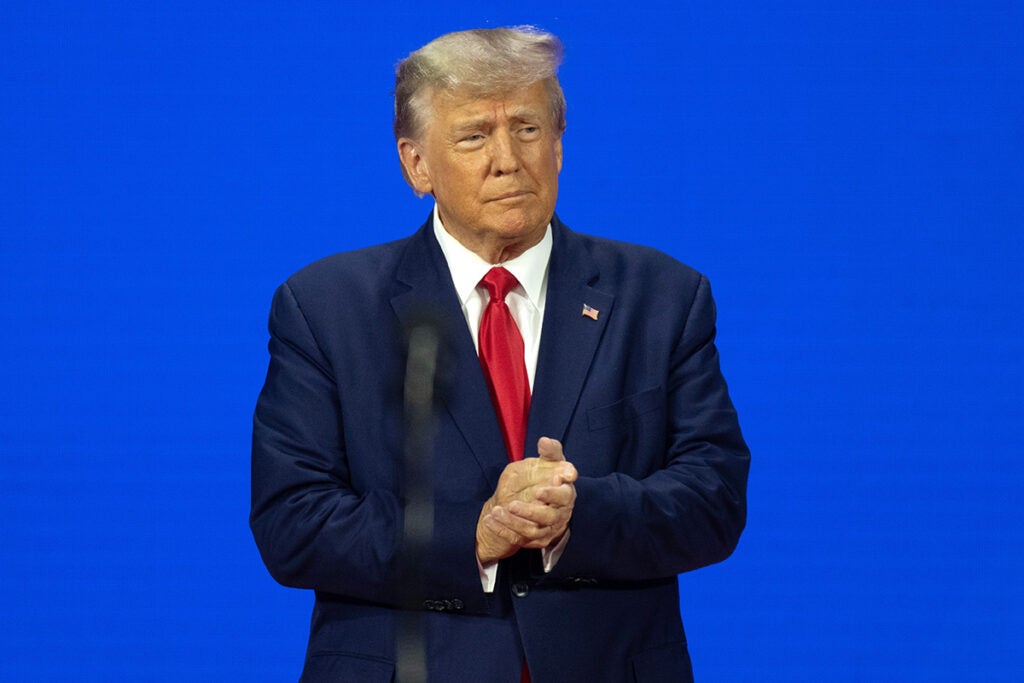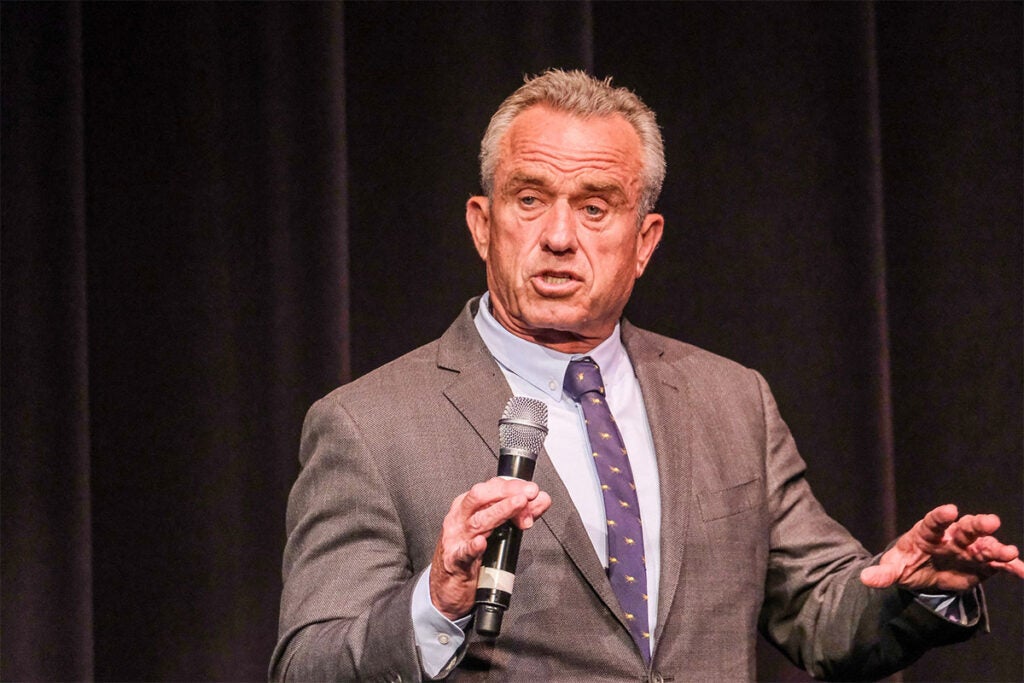
This decade has so far been anything but predictable, with a global pandemic, wars and a churn of Conservative prime ministers tearing up forecasters’ scripts. There could be more seismic change on the horizon if Saxo Bank’s 2024 global event predictions come true.
Steen Jakobsen, chief investment officer at Saxo Bank, has built a reputation for surprising and shocking the financial community with the company’s annual ‘Outrageous Predictions’ report. This yearly stab at the future focuses on a series of unlikely, but not impossible, events which, if they were to occur, would send shockwaves across the financial markets.
So what could be on the cards for 2024?
Saxo outrageous global event predictions for 2024
Saudi Arabia buys the UEFA Champions League franchise

Saudi Arabia has been focusing on its soft power by extending its investment into sport and tourism, so perhaps the idea that the kingdom might snap up the UEFA Champions League franchise and create a FIFA World Champions League from its ashes is not so far-fetched.
After all, Saudi Arabia’s Public Investment Fund effectively bought global golf earlier this year in a deal that will change the future of the entire sport. And football fan Crown Prince Mohammed bin Salman has overseen the overhaul of the Saudi Pro League, enticing world-class players to the desert state for huge sums and, in turn, upping the league’s credentials.
[See also: Abu Dhabi’s ascension: hedge funds invest as UAE cements reputation as global hotspot]
Saudi Arabia might be restructuring its economy away from its dependency on oil revenues towards becoming a tourism, leisure, and entertainment powerhouse, but it’s its oil money that is allowing them to flex their soft power muscles.
Saxo predicts oil will reach $150 per barrel in the middle of the year which would give the Saudis the spending might to buy up the UEFA Champions League franchise and expand it into a global competition, with a number of games played in Riyadh.
Obesity wonder drugs spark global health crisis
GLP-1 obesity wonder drugs have been heralded as a solution to the modern world’s obesity epidemic. But if losing weight is as easy as popping a pill, why hit the treadmill and choose healthy eating over total indulgence?
[See also: The best health clubs and spas for high net worth individuals in 2023]
Saxo Bank predicts governments will dole out obesity drugs in a bid to slim down their populations at such a rate that demand will outstrip supply, leaving patients, who had given up exercise in anticipation of their next injection, waiting – and waiting.
The result, says Saxo, is an uptick in adult obesity rates from the current 39 per cent to 45 per cent in 2024.
The end of capitalism in the US

Some of Saxo’s 2024 global event predictions are more outrageous than others. The US ushering in the end of capitalism in a bid to tackle its economic challenges and avoid social unrest during a presidential election year is at the furthest reaches of believability.
[See also: What are the most expensive private schools in America?]
In this scenario, the US government is forced to increase fiscal spending exponentially due to lingering inflationary pressures and foreign investors repatriating capital that drags on demand for US Treasuries.
This provokes a spike in US Treasury yields and in a desperate attempt to normalise borrowing costs, the US government makes income from government bonds tax-free. You read it here first.
Generative AI deepfake triggers a national security crisis

Generative Artificial Intelligence has been hailed as a productivity boon and flagged as a potential national security threat by governments throughout 2023, and it is only likely to dominate agendas more in 2024. This will be clear from the start of the year, when it will form the central theme for Davos 2024.
[See also: How should UHNWs protect against the risks of AI?]
In a 2024 global event prediction that reads like both a sci-fi film synopsis and an increasingly likely event, Saxo Bank speculates that a daring AI deepfake heist against a high-ranking official in a developed country could lead to a global crackdown. The new regulations introduced in the wake of crisis puts a pin in AI hype and once visionary VCs flee the industry.
Governments impose new laws that allow only a small group of entities to report public news, which leads to the unlikely resurrection of print media.
Deficit countries form ‘Rome Club’ to negotiate trade terms
The world’s largest deficit countries – the US, UK, India, Brazil, Canada and France – meet in Rome to found the ‘Rome Club’, with the mission of fixing the ever-growing divergence in the global trade and financial system.
The six founding members agree to set better terms for structurally reducing the highest surplus countries’ ability to keep growing their surpluses. These six countries are China, Germany, Norway, Japan, Singapore and the Netherlands.
The argument goes that resetting the deficits through gradual pegged revaluations of the surplus countries would enable a global reset, creating a more equal and stable economic model.
The fact that US debt became uncontrollable in 2022 is the key catalyst for the foundation of this new international organisation.
Robert F. Kennedy Jr wins the 2024 US presidential election

Robert F. Kennedy Jr – scion of America’s most famous political dynasty – becomes the first third-party candidate to win the US presidential election, beating President Biden and the Republican candidate (likely Donald Trump).
A number of factors contribute to this historic result. Voters are fed-up with geriatric presidents; support for Biden wanes as the economy and labour market go into a tailspin; and Trump’s erratic behaviour sees the ranks of his core supporter group dwindle. Voters also link rising prices for oil, rent and basic goods to Biden’s mismanagement of the twin wars in Ukraine and the Middle East.
[See also: Private markets remain key to family office strategy despite dip in returns]
Kennedy’s pro-peace platform wins over Democrats tired of conflict, while Trump supporters are drawn to his isolationist and populist message.
On 5 November election day, Kennedy wins the US presidential election with 38 per cent of the popular vote, with Biden and Trump splitting the rest almost perfectly evenly.
As things stand, however, this political upheaval seems very unlikely indeed.
Japan’s economy surges

Japan experiences a surprising economic surge, leading to a significant policy shift by the Bank of Japan.
‘The deflation era in Japan has ended, bringing wage growth back.’ notes Saxo Bank’s report. ‘With a yield curve control policy in place, the Japanese economy is over-stimulated as real rates decline with nominal yields capped but inflation expectations rising. The BoJ is therefore forced to end its yield curve control policy in 2024. This causes a rout in global bond markets, as Japanese investors move money back home.’
Yen strengthens as Japanese investors repatriate money to domestic assets, pushing USDJPY below 130, EURJPY below 140 and AUDJPY below 88.
Luxury plunges as EU introduces a wealth tax

In the UK, the prospect of a Labour government brings with it the threat of a wealth tax.
But, according to Saxo’s 2024 global event predictions, it’s the EU that will led the way in 2024 with a tax on 2 per cent of wealth as the bloc raises funding for policy goals, including climate change mitigation, health care and education.
[See also: Spear’s Tax Survey 2023: what a Labour government could mean for the UK’s tax landscape]
The introduction of the European Union’s new wealth tax sends shockwaves through the luxury market with LVMH shares plunging 40 per cent while other luxury brands such as Porsche and Ferrari see their share price suffer.
Saxo’s prediction builds on the EU Commission July 2023 European Citizens’ Initiative (ECI) commitment entitled: ‘Taxing great wealth to finance the ecological and social transition’.






